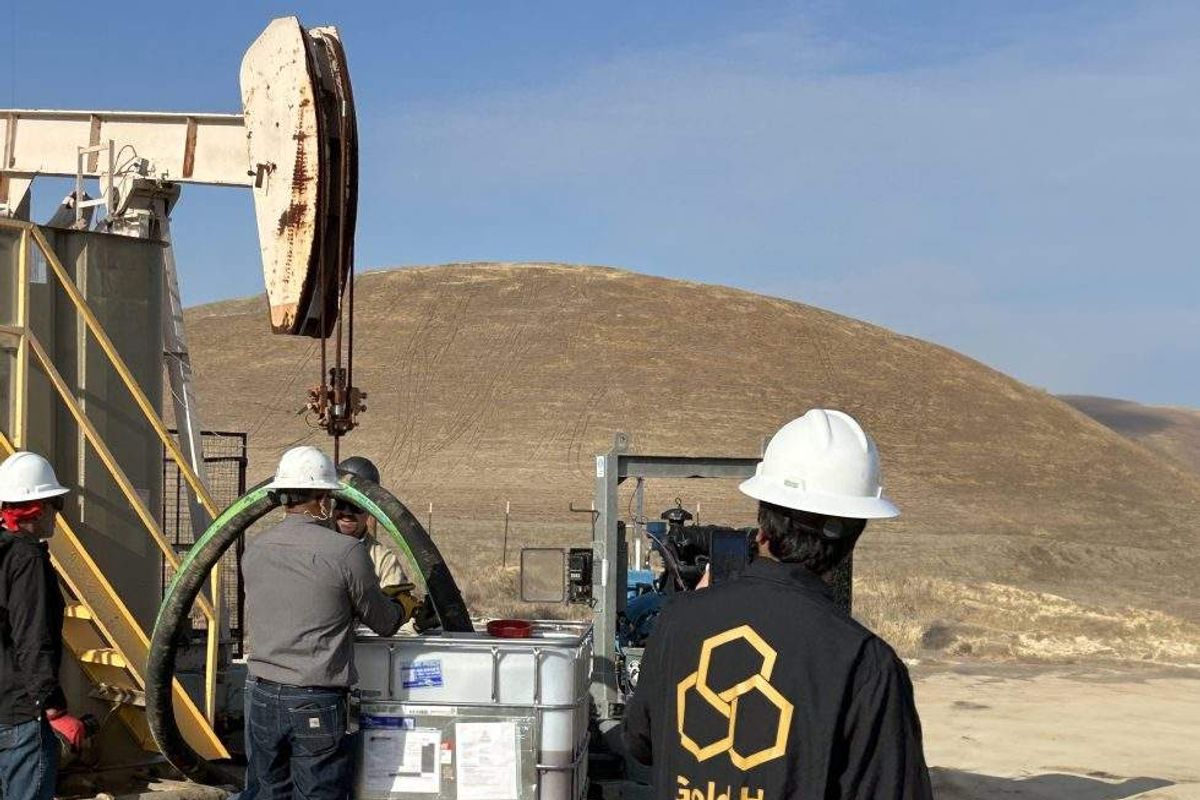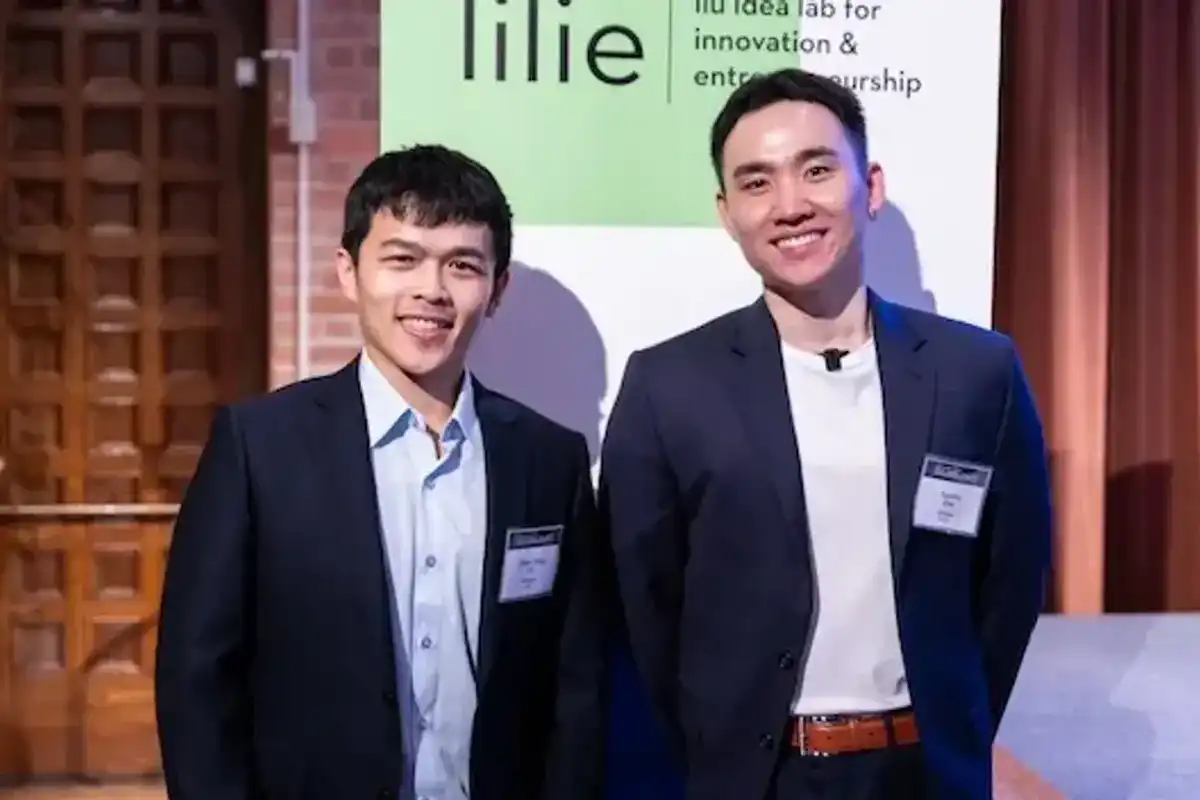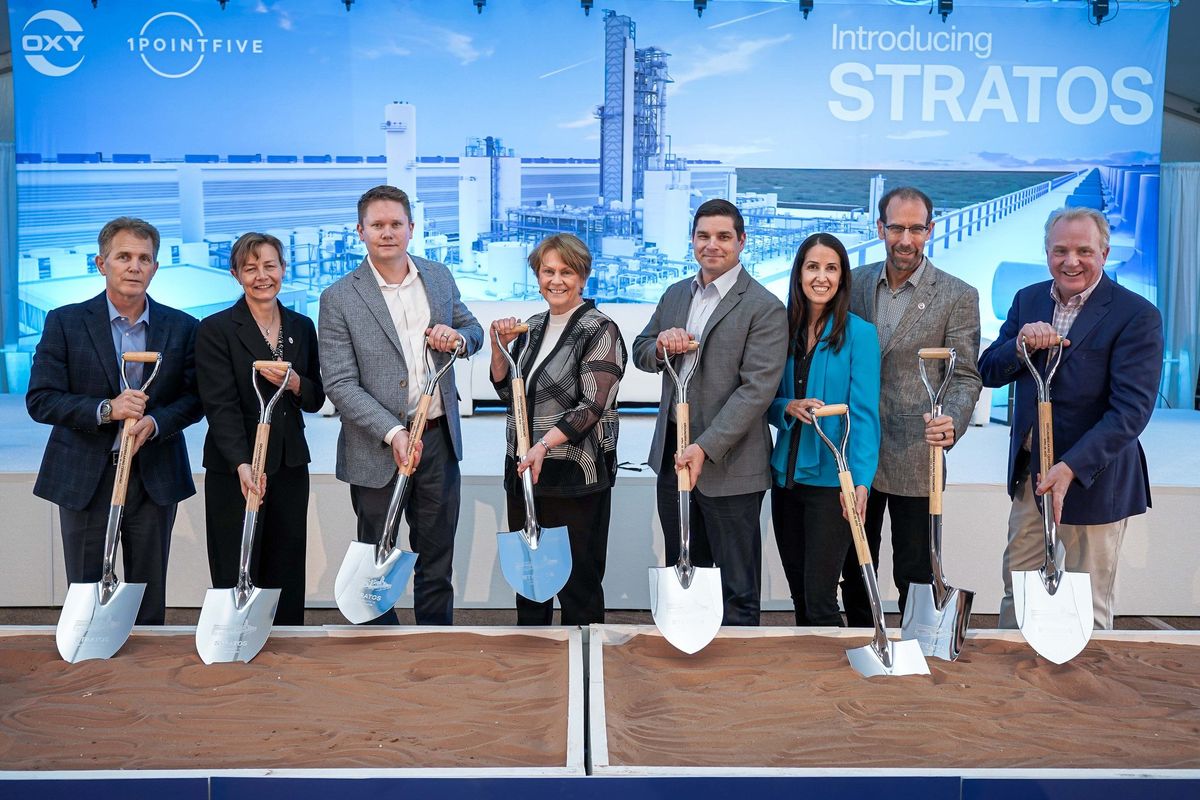Houston has long been touted as the energy capital of the world, and it's now it's also a leading player in the energy transition — home to numerous startups and innovators working toward a cleaner future.
As part of the 2025 Houston Innovation Awards, presented by InnovationMap, the Energy Transition Business category honors innovative startups that are providing solution within renewables, climatetech, clean energy, alternative materials, circular economy, and more.
Seven energy transition companies have been named finalists for the 2025 award. They range from a spinoff stimulating subsurface hydrogen from end-of-life oil fields to a company converting prickly pear cactus biogas into energy.
Read more about these climatetech businesses, their founders, and their green initiatives below. Then join us at the Houston Innovation Awards on Nov. 13 at Greentown Labs, when the winner will be unveiled at our live awards ceremony.
Tickets are now on sale.
Anning Corporation
Clean energy company Anning Corporation is working to develop geologic hydrogen, a natural carbon-free fuel, using its proprietary stimulation approaches and advanced exploration modeling. The company said that geologic hydrogen has the potential to be the lowest-cost source of reliable baseload electricity in the U.S.
The company was founded by CEO Sophie Broun in 2024 and is a member of Greentown Labs. Last month, it also announced that it was chosen to participate in Breakthrough Energy’s prestigious Fellows Program. Anning raised a pre-seed round this year and is currently raising a $6 million seed round.
Capwell Services
Houston-based methane capture company Capwell Services works to eliminate vented oil and gas emissions economically for operators. According to the company, methane emissions are vented from most oil and gas facilities due to safety protocols, and operators are not able to capture the gas cost-effectively, leading operators to emit more than 14 million metric tons of methane per year in the U.S. and Canada. Founded in 2022, Capwell specializes in low and intermittent flow vents for methane capture.
The company began as a University of Pennsylvania senior design project led by current CEO Andrew Lane. It has since participated in programs with Greentown Labs and Rice Clean Energy Accelerator. The company moved to Houston in 2023 and raised a pre-seed round. It has also received federal funding from the DOE. Capwell is currently piloting its commercial unit with oil and gas operators.
Deep Anchor Solutions
Offshore energy consulting and design company Deep Anchor Solutions aims to help expedite the adoption of floating offshore energy infrastructure with its deeply embedded ring anchor (DERA) technology. According to the company, its patented DERA system can be installed quietly without heavy-lift vessels, reducing anchor-related costs by up to 75 percent and lifecycle CO2 emissions by up to 80 percent.
The company was founded in 2023 by current CEO Junho Lee and CTO Charles Aubeny. Lee earned his Ph.D. in geotechnical engineering from Texas A&M University, where Aubeny is a professor of civil and environmental engineering. The company has participated in numerous accelerators and incubators, including Greentown Labs, MassChallenge, EnergyTech Nexus LiftOff, and others. Lee is an Activate 2025 fellow.
Eclipse Energy
Previously known as Gold H2, Eclipse Energy converts end-of-life oil fields into low-cost, sustainable hydrogen sources. It completed its first field trial this summer, which demonstrated subsurface bio-stimulated hydrogen production. According to the company, its technology could yield up to 250 billion kilograms of low-carbon hydrogen, which is estimated to provide enough clean power to Los Angeles for over 50 years and avoid roughly 1 billion metric tons of CO2 equivalent.
Eclipse was founded in 2022 by Moji Karimi (CEO and chairman of Cemvita), Prabhdeep Sekhon (CEO of Eclipse), Tara Karimi and Rayyan Islam. The company closed an $8 million series A this year and has plans to raise another round in 2026.
Loop Bioproducts
Agricultural chemical manufacturing company Loop Bioproducts leverages the physiology of prickly pear cactus grown in Texas to produce bioenergy, food, and remediate industrial wastewater streams. The company uses its remote sensing technology, proprietary image-based machine learning model, and R&D innovation to capture raw biogas from the cactuses and is focused on scaling cactuses as an industrial crop on land.
Rhiannon Parker founded Loop Bioproducts in 2023.
Mars Materials
Clean chemical manufacturing business Mars Materials is working to convert captured carbon into resources, such as carbon fiber and wastewater treatment chemicals. The company develops and produces its drop-in chemical products in Houston and uses an in-licensed process for the National Renewable Energy Lab to produce acrylonitrile, which is used to produce plastics, synthetic fibers, and rubbers. The company reports that it plans to open its first commercial plant in the next 18 months.
Founded in 2019 by CEO Aaron Fitzgerald, CTO Kristian Gubsch, and lead engineer Trey Sheridan, the company has raised just under $1 million in capital and is backed by Bill Gates’ Breakthrough Energy, Shell, Black & Veatch, and other organizations.
Solidec
Chemical manufacturing company Solidec has developed autonomous generators that extract molecules from water and air and converts them into pure chemicals and fuels that are free of carbon emissions onsite, eliminating the need for transport, storage, and permitting. The company was founded around innovations developed by Rice University associate professor Haotian Wang.
The company was selected for the Chevron Technology Ventures’ catalyst program, Greentown Labs, NSF I-Corps and was part of the first cohort of the Activate Houston program. It won first place at the 2024 startup pitch competition at CERAWeek. Solidec was founded in 2023 by Wang, who serves as chief scientist, CEO Ryan DuChanois, and CTO Yang Xia. It closed a $2.5 million seed round earlier this year.
-----
The Houston Innovation Awards program is sponsored by Houston City College Northwest, Houston Powder Coaters, FLIGHT by Yuengling, and more to be announced soon. For sponsorship opportunities, please contact sales@innovationmap.com.










